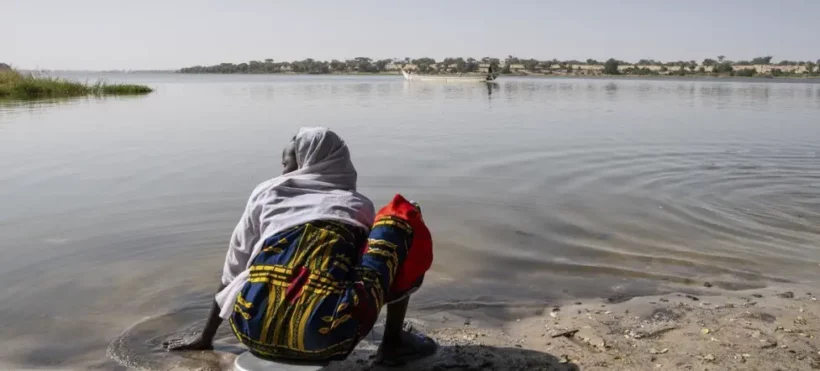Niger announced on Thursday that it will join the United Nations Water Convention, as neighbouring Cameroon and Chad have already done, and Nigeria is expected to join as well, to advance the protected management of the Lake Chad basin, which is shared by the four African countries.
The forthcoming accession of Niger to the Water Convention confirms the growing political interest worldwide in transboundary cooperation on shared water resources,” said Sonja Koeppel, secretary of the pact.
The shallow Lake Chad, the axis of an original 2.3 million square kilometre basin in west-central Africa, had a water body of 26,000 square kilometres until the mid-20th century, reduced to less than 1,000 square kilometres today as a result of several factors, including the climate crisis.
Once the accessions are completed, the lake will be covered by the legal framework of the Convention on the Protection and Use of Transboundary Watercourses and International Lakes.
This convention was initially adopted in 1992 in Helsinki by the members of the United Nations Economic Commission for Europe (UNECE), who decided to extend it, at their 2003 meeting, by opening it to all UN member states.
Niger’s accession is marked by a characteristic of its water resources: 90 percent of them are shared with neighbouring countries, and its population of 25 million is experiencing a rapid increase in water demand, as it is growing at an annual rate of almost four percent.
Urbanisation, intensification of irrigated agriculture, and increasing industrialisation pose growing challenges to the country’s shared water resources.
Transboundary cooperation is seen as a necessary tool to address some of these challenges and accession to the Convention will allow Niger to advance collaboration with its neighbouring countries.
Niger’s Minister of Water and Sanitation, Adamou Mahaman, said that “the Water Convention constitutes a legal framework whose implementation, in addition to regional frameworks and national instruments, will support our country’s efforts in transboundary cooperation in our shared basins”.
It will also be an instrument “for conflict prevention, peace promotion and sub-regional integration,” Mahaman said.
The Lake Chad region has been the scene of armed conflicts between regular armies and insurgent militias claiming various ethnic, religious or political affiliations, and is a source of instability in the region.
Moreover, the drying up of the lake has followed not only the natural trend towards its reduction, but also the impact of climate change and an excessive or uncontrolled use of its waters and those of its tributaries for urban consumption, crops and pastoral livestock, which is characteristic of the way of life in this African region.
The sub-region is part of the Sahel (the semi-arid strip between the Sahara desert, and the forest zone in the centre of the continent), whose climatic vulnerability results in episodes of severe drought and variable rainfall, sometimes very low and sometimes torrential, leading to flooding.
Therefore, “transboundary cooperation represents a necessary tool to address some of these challenges by providing a space for discussion between riparian countries to identify joint solutions,” Koeppel’s statement said at the UNECE headquarters in Switzerland.
The UN Water Convention is making inroads in Africa and Cameroon, Chad, Ghana, Guinea-Bissau, Senegal and Togo have already joined.
At the secretariat, Benin, Botswana, Burkina Faso, Congo, Central African Republic, Democratic Republic of Congo, Mauritania, Namibia, Niger, Nigeria, Sierra Leone, Tanzania, Tunisia, Uganda and Zambia are expected to join soon.










